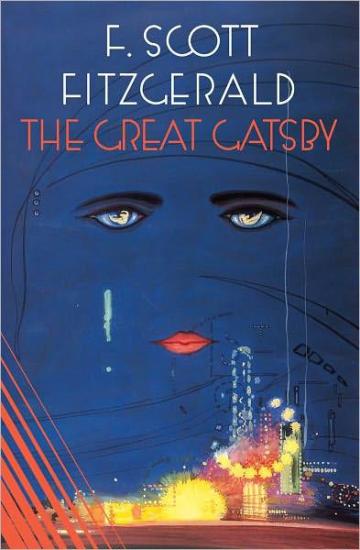
Rating: Not rated
Tags: Historical, Classic, Romance, Unknown, Lang:en
Summary
The Great Gatsby, F. Scott Fitzgerald’s third
book, stands as the supreme achievement of his career. This
exemplary novel of the Jazz Age has been acclaimed by
generations of readers. The story of the fabulously wealthy
Jay Gatsby and his love for the beautiful Daisy Buchanan, of
lavish parties on Long Island at a time when
The New York Times noted “gin was the national
drink and sex the national obsession,” it is an
exquisitely crafted tale of America in the 1920s.
The Great Gatsby is one of the great classics of
twentieth-century literature. In 1922, F. Scott Fitzgerald announced his decision to
write "something
new--something extraordinary and beautiful and
simple + intricately patterned." That extraordinary,
beautiful, intricately patterned, and above all, simple novel
became
The Great Gatsby, arguably Fitzgerald's finest work
and certainly the book for which he is best known. A portrait
of the Jazz Age in all of its decadence and excess,
Gatsby captured the spirit of the author's
generation and earned itself a permanent place in American
mythology. Self-made, self-invented millionaire Jay Gatsby
embodies some of Fitzgerald's--and his country's--most
abiding obsessions: money, ambition, greed, and the promise
of new beginnings. "Gatsby believed in the green light, the
orgiastic future that year by year recedes before us. It
eluded us then, but that's no matter--tomorrow we will run
faster, stretch out our arms farther.... And one fine
morning--" Gatsby's rise to glory and eventual fall from
grace becomes a kind of cautionary tale about the American
Dream. It's also a love story, of sorts, the narrative of
Gatsby's quixotic passion for Daisy Buchanan. The pair meet
five years before the novel begins, when Daisy is a legendary
young Louisville beauty and Gatsby an impoverished officer.
They fall in love, but while Gatsby serves overseas, Daisy
marries the brutal, bullying, but extremely rich Tom
Buchanan. After the war, Gatsby devotes himself blindly to
the pursuit of wealth by whatever means--and to the pursuit
of Daisy, which amounts to the same thing. "Her voice is full
of money," Gatsby says admiringly, in one of the novel's more
famous descriptions. His millions made, Gatsby buys a mansion
across Long Island Sound from Daisy's patrician East Egg
address, throws lavish parties, and waits for her to appear.
When she does, events unfold with all the tragic
inevitability of a Greek drama, with detached, cynical
neighbor Nick Carraway acting as chorus throughout. Spare,
elegantly plotted, and written in crystalline prose,
The Great Gatsby is as perfectly satisfying as the
best kind of poem. Readers in that sizeable group of people who think The
Great Gatsby is the Great American Novel will be delighted
with Robbins's subtle, brainy and immensely touching new
reading. There have been audio versions of Gatsby before
this-by Alexander Scourby and Christopher Reeve, to name
two-but actor/director Robbins brings a fresh and bracing
vision that makes the story gleam. From the jaunty irony of
the title page quote ("Lover, gold-hatted, high-bouncing
lover, I must have you!") to the poetry of Fitzgerald's
ending about "the dark fields of the republic" and "boats
against the current, borne back ceaselessly into the past,"
Robbins conjures up a sublime portrait of a lost world. And
as a bonus, the excellent audio actor Robert Sean Leonard
reads a selection of Fitzgerald's letters to editors, agents
and friends which focus on the writing and selling of the
novel. Listeners will revel in learning random factoids,
e.g., in 1924, Scott and Zelda were living in a Rome hotel
that cost just over $500 a month, and he was respectfully
suggesting that his agent Harold Ober ask $15,000 from
Liberty magazine for the serial rights to Gatsby.
Amazon.com Review
From Publishers Weekly